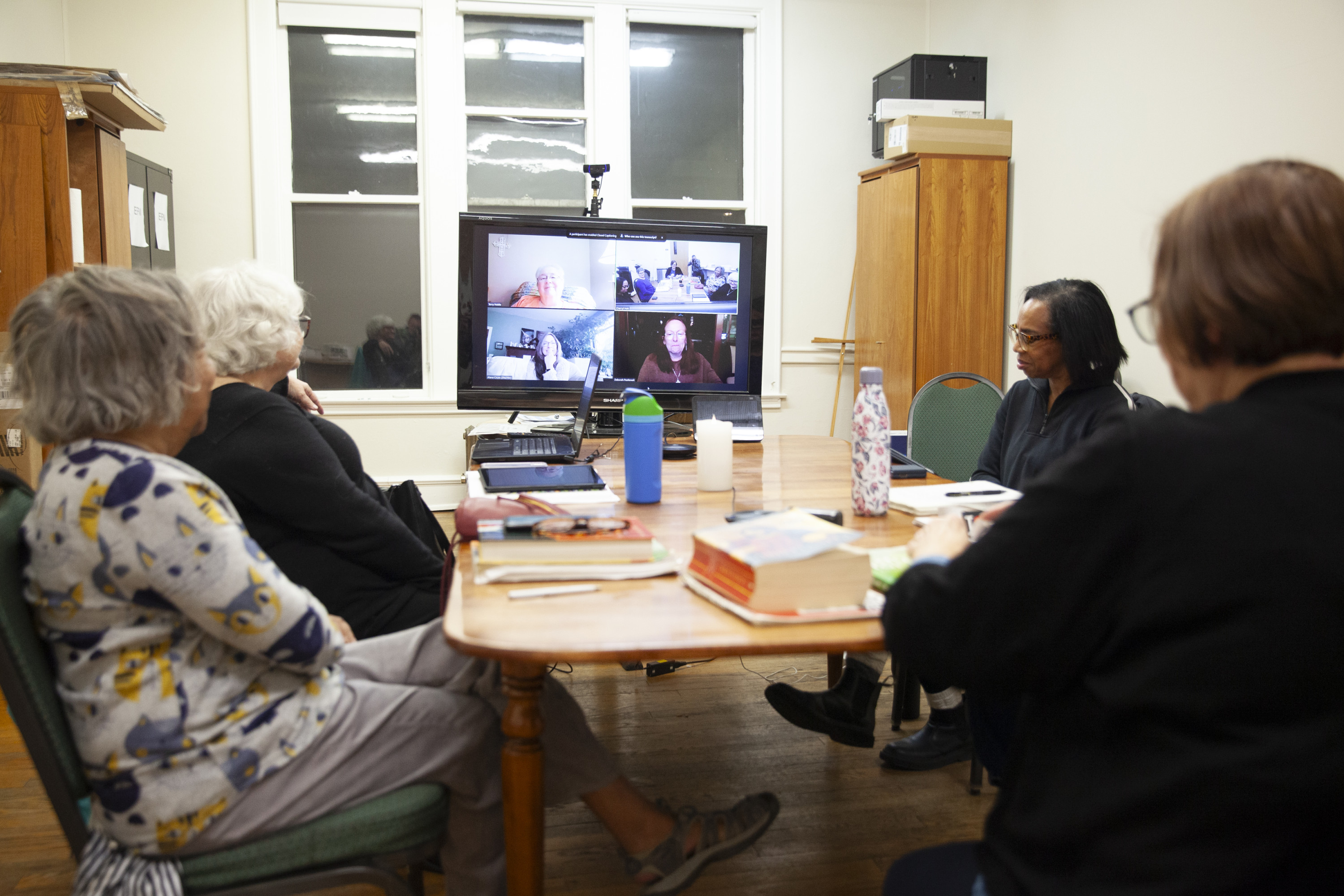The Education for Ministry (EfM) program is a course of study which takes place in groups of 6-12 participants. The program focuses on theological reflection, small-group engagment, and transformation.
 EfM believes our relationship to God matters and is a means of living in a complex world with faith, hope, and love. We believe in creating space for curiosity, community, and looking at life through the lens of relationship to God. We believe that the lens through which we deepen our relationship with God can be sharpened by specific practices. We call them EfM’s Core Practices. Our Core Practices are:
EfM believes our relationship to God matters and is a means of living in a complex world with faith, hope, and love. We believe in creating space for curiosity, community, and looking at life through the lens of relationship to God. We believe that the lens through which we deepen our relationship with God can be sharpened by specific practices. We call them EfM’s Core Practices. Our Core Practices are:
Living in Community
We value creating sacred space where people feel welcomed and safe. We practice:
- offering stories of our experiences
- listening with ears of the heart
- and setting expectations for how group members seek understanding and explore together with respect and care.
Regular Prayer and Worship
We recognize the presence of God with us in every session, and we explore ways to deepen our individual spirituality.
- Group members typically share responsibility for leading worship, which means exploring different expressions of worship such as poetry, music, and types of prayer.
Theological Reflection (TR)
Our conversations take on an added dimension in EfM’s model of theological reflection.
- TR is a guided conversation that invites the Christian tradition, our experiences, our opinions, and the various cultures that influence us to speak to each other, all leading to discovering ways to live our faith more fully.
- This is a central practice for EfM.
Study
EfM materials root us in Christian scripture, history, theology, and ethics.
- EfM is learner driven.
- We invite you to small groups for reading and reflection.
- You decide what’s relevant to your faith journey.
- No tests or papers due. Ever.
Vocational Discernment
When EfM talks about vocation, it isn’t so much about what a person does, but how a person lives with purpose.
- Vocational discernment lies within these questions: “Who am I becoming?” and “What is my next faithful step?”
When we embody the Core Practices of EfM, we create a community where discernment is both a series of “aha” moments and a gradual understanding.
All Seekers Welcome!
You do not need to be an Episcopalian to enroll. You do not need to be a Christian. You do not need to be in the United States. When you enroll in an EfM program, you will want to be able to read the materials, engage the practices, and participate in discussions, reflections, and worship of the seminar group.
We offer small groups onsite and online.
